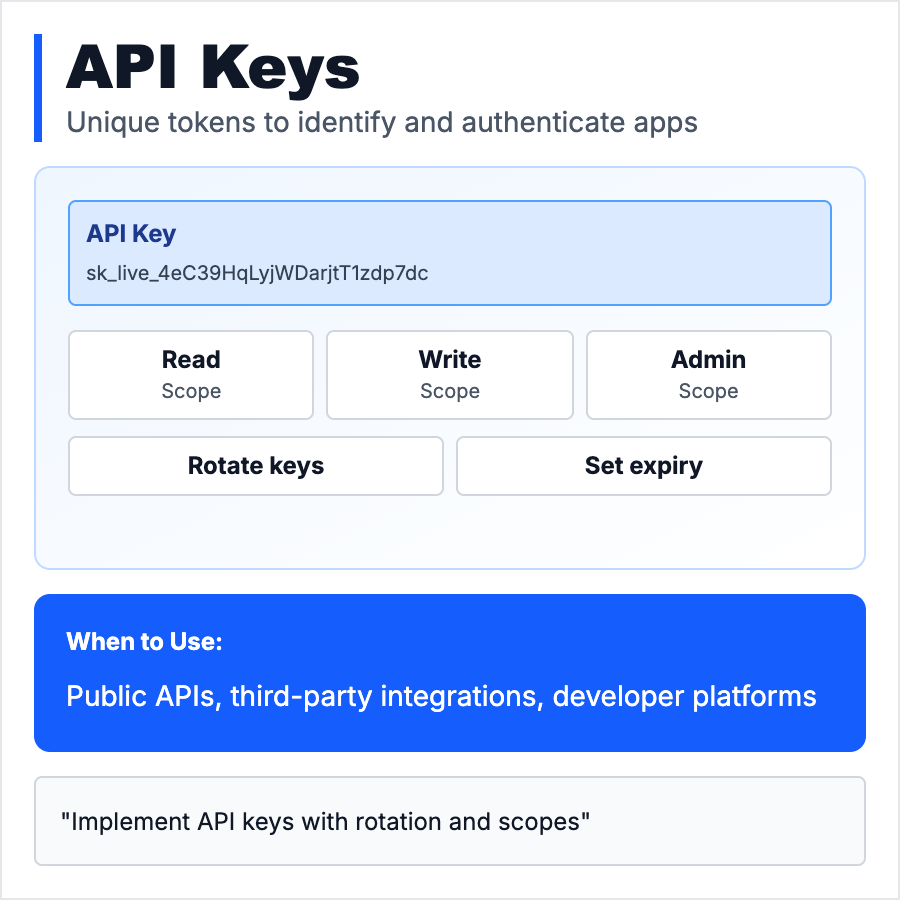
What is API Keys?
API Keys are secret tokens that authenticate API requests, proving the caller is authorized to access your API. Typically a long random string (sk_live_abc123...) sent in headers or query params. Common in developer tools (Stripe, OpenAI, Twilio). Simpler than OAuth for server-to-server APIs, but less secure than JWTs for user authentication.
When Should You Use This?
Use API keys for server-to-server authentication (backend calling your API), developer tools, or machine-to-machine access. Not suitable for frontend/mobile apps (keys get exposed). Use separate keys for dev/staging/prod. Provide key management UI (create, revoke, rotate). Pair with rate limiting to prevent abuse. For user-facing apps, use OAuth or JWTs instead.
Common Mistakes to Avoid
- •Exposing keys in frontend code—API keys in JavaScript are public; use backend proxies
- •Not rotating keys—if a key leaks, rotate it immediately and invalidate the old one
- •Using the same key everywhere—use different keys per environment (dev, staging, prod)
- •Sending keys in URL params—URLs are logged; use Authorization header instead
- •Not rate limiting per key—stolen keys can drain your resources; limit requests per key
Real-World Examples
- •Stripe—uses API keys like sk_test_... for test mode, sk_live_... for production
- •OpenAI—API keys (sk-...) authenticate GPT API requests, billed per usage
- •Google Maps API—requires API key for geocoding, maps, directions
- •SendGrid—API keys for sending emails, separate keys for SMTP vs HTTP API
Category
Cybersecurity
Tags
api-keysapi-authenticationapi-securitybearer-tokensecret-key